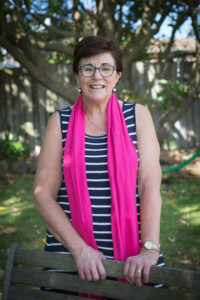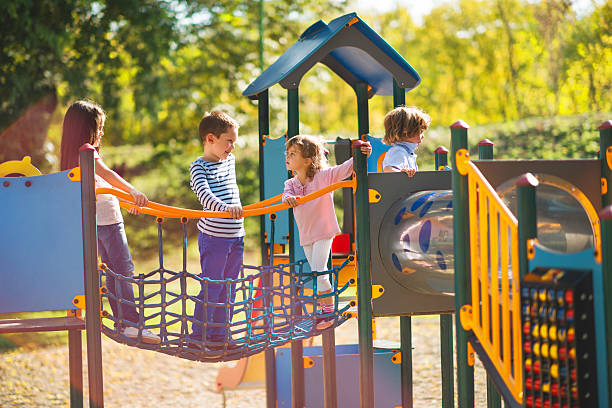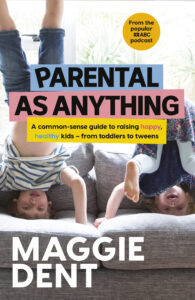While many parents experience increasing judgement in a digital age, revered parenting expert Maggie Dent assures us that to be a good parent, being perfect is not possible and that mistakes are normal.
 Maggie Dent’s newest book, Parental as Anything, an adaption of her popular ABC podcast, is a guide full of anecdotes, practical parenting advice and humour.
Maggie Dent’s newest book, Parental as Anything, an adaption of her popular ABC podcast, is a guide full of anecdotes, practical parenting advice and humour.
Maggie tells us that while there once was a time where parents could not see what everyone else was doing, today’s social media proliferation exacerbates constant comparing, despairing and fixation on the negatives, or what we as parents could be doing better.
Maggie is an author, educator and mother to four boys, but she stresses she was not perfect and “mucked up so many times”.
There will always be days while raising children where mistakes are made, or morale is low.
But Maggie says to “Look at what’s going well at the funny moments, the light moments, the loving moments, rather than focusing the lens on the things we wish we could do better.” 
So how can we care for, nurture and still discipline our children in today’s age? Maggie emphasises being “the fun, the firm, the fair,” parent and that children are more likely to agree with parents who are kind and loving. If there is compassion and connection, in moments of discipline, children are increasingly capable of listening.
Maggie tells us that there is a difference between the disciplining of a Lamb and a Rooster.
Lambs have a tendency to be more sensitive or gentle and less likely to push against boundaries, while Roosters are outgoing with the need to be respected and seen as important, eager to argue or push against limits. Power struggles can occur particularly with the Roosters.
Maggie reminds us that patience is important when dealing with heated moments.
A child’s “Number one need is a safe base,” Maggie says.
She outlines that “Tuning in to how they are doing,” is vital. Watching them constantly and recognising their needs in certain situations.
There is a difference between a tantrum as against a meltdown, the former of which springs from an urge to assert a sense of self, and the latter a sensory overload. Tantrums come from outside stimuli (“No you can’t do/have that right now”) while a meltdown occurs when the nervous system has been over-flooded.
“Children are gradually growing in their capacity to manage their world,” Maggie says. 
Kids can experience moments of self-struggle, but they will get better with self-regulation and emotional intelligence as they grow up and their pre-frontal lobe matures.
They are not naughty they are just “Not coping with their world right now,” Maggie says, emphasising that compassion and connection are essential.
Maggie addresses when parents wish they had approached certain things differently. She says that parents can always change the ways in which they connect with their children and can always rebuild attachment and love in a new way.
“It is never, ever too late,” she says.
“Every child is a one-off,” she emphasises. There is no exact guide for any one child, but as a parent it is still possible to be the one that knows them the best and aim to help them in their world in any way that they can.
Maggie addresses the dreaded topic of screen time.
She acknowledges that while complete denial is not helpful or realistic, in order to prepare children to live in the digital world; however, it is imperative that online behaviour and technology use are monitored. 
“You need to be the pilot of the digital plane,” she says.
She encourages parents to take into account many factors such as:
- Hand-held device use
- Television viewing and consideration of acceptable advertisements
- Rewards systems on video games that can foster gambling traits
- Risk taking in real life while behaviour modelling
- Video game characteristics entering into the impressionable classroom
- Chores still needing to be completed
- Outside play with peers in real life
- Levels and when to finish
- Harmful content
 Technology can be used for education, entertainment or even recreational activity. A lot of time and energy will go into raising responsible and respectful digital citizens.
Technology can be used for education, entertainment or even recreational activity. A lot of time and energy will go into raising responsible and respectful digital citizens.
Maggie speaks about sexual education in childhood. She recommends speaking with children about sex and not just in one singular sitting. It should be a continual and constant conversation or ability to ask about this topic.
She underlines topics such as body ownership, permission to touch, basic private anatomy and consent should be discussed at home even before heading off to school. Maggie encourages parents to allow their children to ask questions or come to them if they see something that makes them uncomfortable.
Unwanted online dark or sexual content can be damaging and can set unrealistic standards. Plainly untrue and offensive myths are all over the internet about sex and it is important to be mindful of this as a parent.

“92% of what children learn is based on modelling,” Maggie says.
To finish, Maggie says that nurturing safe respectful and warm relationships at home and between family members is important while nevertheless acknowledging that conflict is normal and communication is key.

Watch the full exclusive interview with Maggie Dent below or on our YouTube channel.



